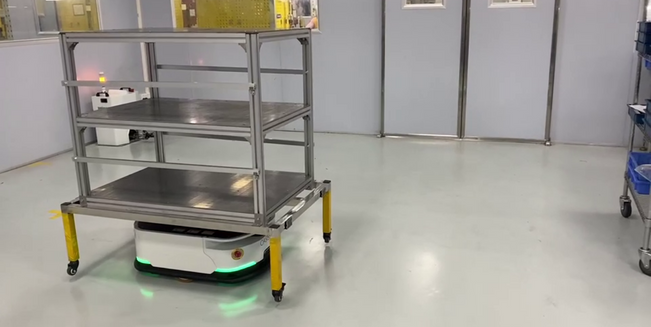
CASE STUDY
GBJM Aiming Automated Intralogistics in Dongguan Factory With Autonomous Mobile Robots
Applying AMRs in your logistics or production processes can help you achieve smooth and constant supply, ensuring uninterrupted production flow and minimizing waiting times.

CASE STUDY
Flexible Distribution Solution For Materials In A Semiconductor Processing Facility
Standard Robots has extensive experience and a thorough understanding of wafer handling automation and factory integration. This enables us to develop wafer handling equipment that meets all of your project requirements, whether it involves solving a complex wafer handling application or integrating automation into your current process device.
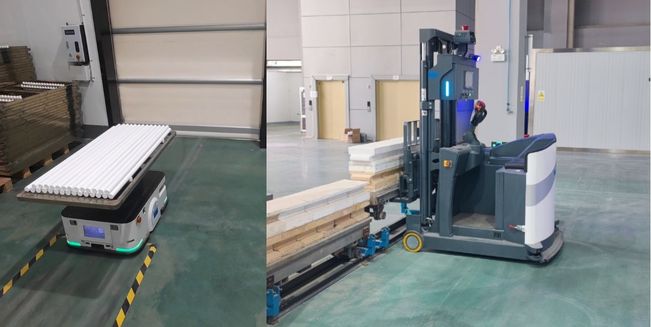
CASE STUDY
Internal Logistics Solution In New Material Industry
Efficient internal logistics for materials means improved productivity. The company cooperated with Standard Robots to upgrade the automation of intralogistics in production lines and invested in autonomous forklifts and mobile robots to replace the traditional AGVs, which handle all kiln cars in between processes.
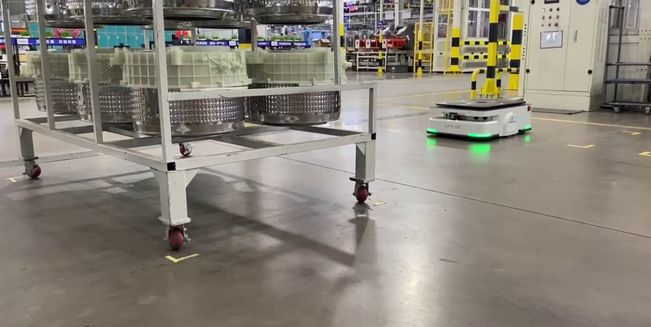
CASE STUDY
5 Oasis Mobile Robots Accelerate intralogistics flows between lines
5 OASIS 600UL mobile robots were deployed to transport 100 custom roller racks containing WIP from the ironworker machines to the line-side storage area, along with two AMRs for automating the transportation of line-side WIP to the final assembly
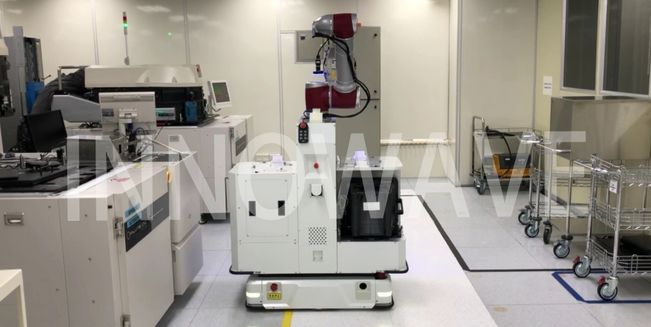
CASE STUDY
The Latest Compound Robot - Oasis 600C-SRA alleviates the processing bottleneck and realizes intelligent materials handling
Standard Robots and ZJL Robot have partnered with Innowave Tech, a Singapore-based industrial AI technology company, to jointly create a fully automatic manufacturing solution for the semiconductor industry.
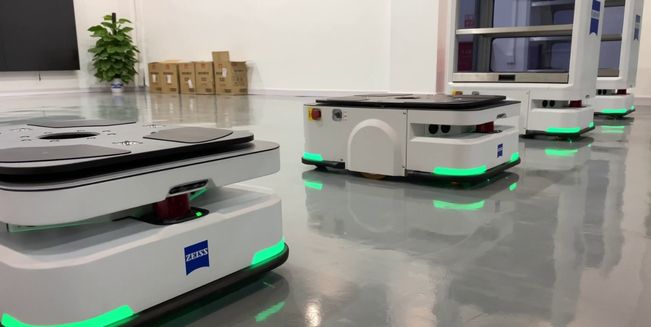
CASE STUDY
ZEISS Trusts AMRs in Logistics Operations with Standard Robots, Guangzhou Campus
The visionary entrepreneur Carl Zeiss transformed many people's lives with his passion. Today, ZEISS Group is the leading technology enterprise in the fields of optics and optoelectronics.
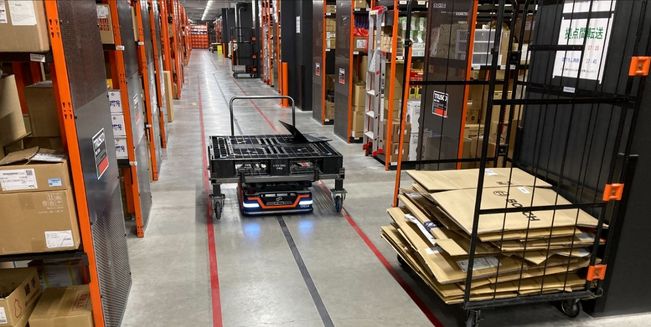
CASE STUDY
OASIS 600C-SRL Mobile Robots Collaborates With Palletizing Robots to Improving Safety and Smoothing the way at Trusco Distribution Center, Japan.
Japan-based Trusco Nakayama Corporation is a specialized trading company that supports Japan's manufacturing industry with an inventory of machine tools unlike any other in the country. Committed to serving customers with fast and reliable delivery, the distribution centre in the greater Tokyo area operates on a 24/7 schedule. The Oasis 600C automated pallet transports between the palletizing station and the outgoing dock. This first development phase will be repeated throughout the facility to reduce logistics downtime and enable 24-hour operations while improving outbound efficiency and worker safety.
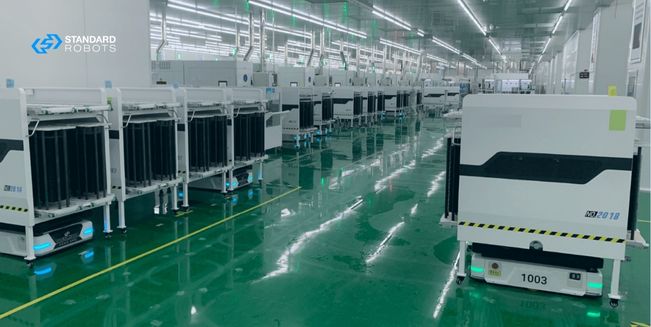
CASE STUDY
Oasis 600C completes logistic loops in a fully automated solar cell factory, reducing manual process errors and improving productivity
Standard Robots delivered 63 Oasis 600C-SRL mobile robots to a solar manufacturing plant, automated all internal logistics reduced manual processes by connecting production lines. One of the most significant mobile robot automation projects in the PV industry.
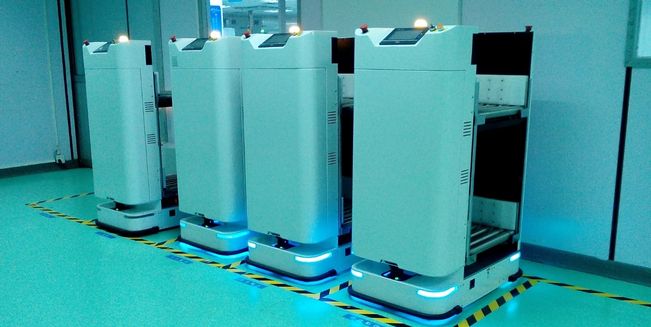
CASE STUDY
What role does flexible logistics AMR play in Delta's 5G smart factory? Electronics industry automation solution case study.
The Delta 5G smart factory uses 5G's high-speed transmission and low latency, combined with AMR, automatic plug-in machines, AR, VR, and other intelligent production environments, attracting widespread attention in the electronics manufacturing industry.

CASE STUDY
Xingyu × Standard Robots | Join hands to create a benchmark mixed solution for intelligent logistics in the auto parts industry.
A mixed fleet of four autonomous mobile robots and two smart-forklifts works around the clock to improve material flows between the production line and storage.
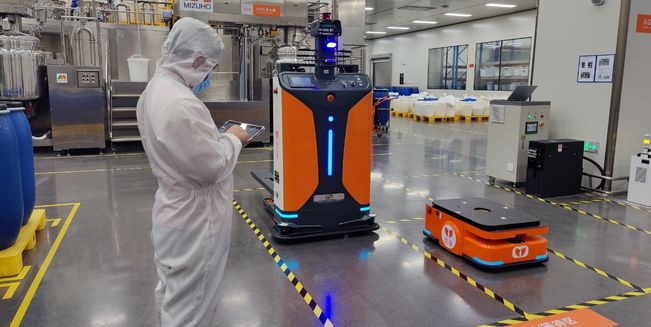
CASE STUDY
8 robots automate the internal logistics of BAWEI Cosmetics Factory in China
Three Oasis autonomous mobile robots (AMR) and five Gulf smart-forklifts have boosted productivity, ensured safety, and dropped the error rate significantly at the BAWEI Plant, a company that focuses on the cosmetic OEM/ODM industry.
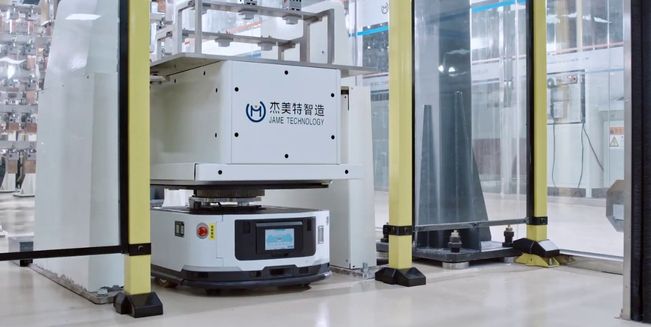
CASE STUDY
Oasis AMRs completed the 72 hour fully automated production plane in Southern China
The Oasis 300 series AMR at JAME Technology in Dongguan, China is equipped with SRT top-mount conveyor module and to help achieve fully automated unmanned manufacturing processes by automating the internal transportation of materials throughout the facility. Bring consistency and flexibility to the workflows of intelligent manufacturing.
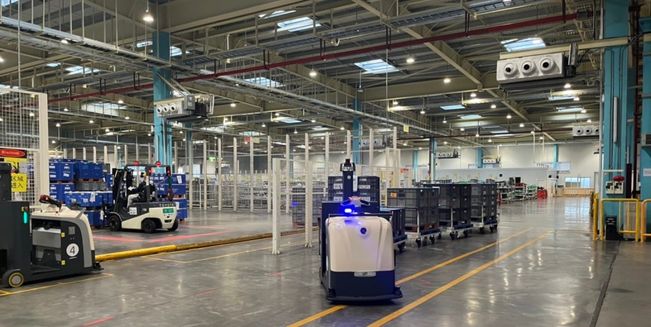
CASE STUDY
GULF-3000-QDD Streamlines Toyota's Largest Final Assembly Line
An automobile final assembly workshop is the single largest production hall in a car factory. The production line orchestrates over 3000 components and assembles 20 to 40 cars per every hour. Because of high value demands, the last 100 meters of the car parts staging area became critical for feeding the assembly line on time as well as efficiently. Also, the free-up human resources can be reconverting back into productive tasks and join with Toyota’s long term sustainability goal.
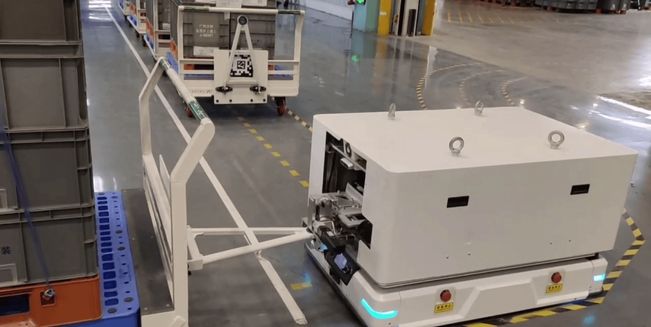
CASE STUDY
Oasis 1200D Automates Materials Transport in A Car Factory Increase Productivity and Solving Labor Issue at Guangdong, South China.
To increase productivity and lower operating costs, this automotive OME factory in the Greater Bay Area of South China has upgraded from manual material transport to automatic delivery using autonomous mobile robots from Standard Robots. 8 Oasis 1200D robots, all equipped with an automatic drawing module, towing material and empty carts between the production line, the warehouse, and the assembly line, contributing to the automation of internal logistics, reducing operating costs and increasing overall productivity.
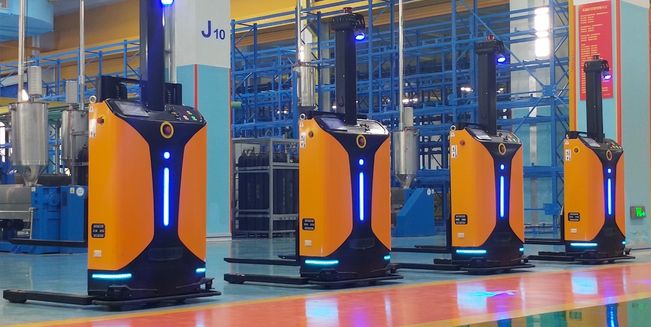
CASE STUDY
Smart Forklift Mass Delivery, Standard Robots Aids Futong Group on Logistics Automation
The smart forklift project launched by Standard Robots and Futong Group has garnered a significant amount of attention now that smart forklifts can fully automate work tasks.
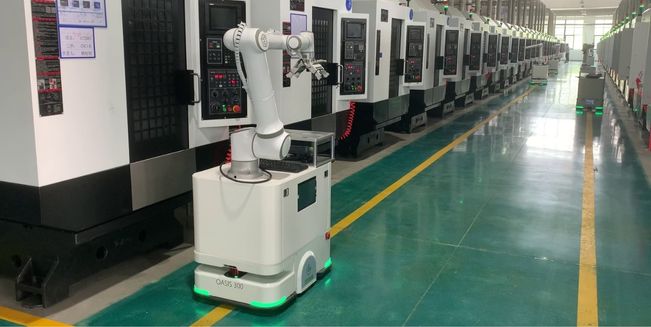
CASE STUDY
Fast Deployment of 20 Compound Mobile Robots in 20 Days
In the post-epidemic age, a huge wave of automation transformation to SMEs in China has arrived. The leading enterprises in autonomous mobile robots and collaborative robots are doing everything they can to occupy the market and establish their presence in the transformation market. With the ever-increasing demand for flexibility, compound mobile robots integrating autonomous mobile robots and collaborative robots have been accepted by the market since they can replace hands and legs.
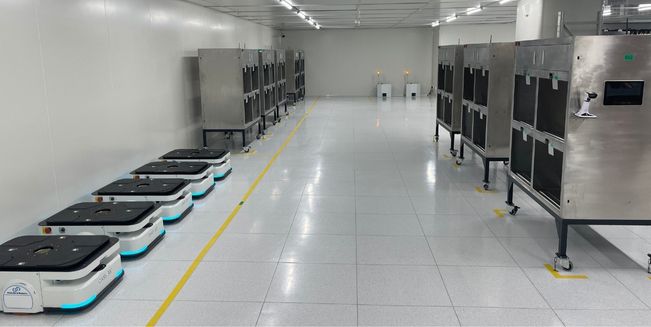
CASE STUDY
Facing a chip shortage, what have Standard Robots done for this industry on the crown?
The global chip shortage has worsened, from the upstream wafer shortage to supplier hoarding and the dire international situation; the circumstances look like they will not get better soon as J.P.Morgen suggested. Whether for consumer electronics, or automotive manufacturing, the demand for chips will only increase with some products continuing to be delayed by a deficiency of chips in 2023. The method to quickly increase production capacity has become a severe challenge in the semiconductor industry for wafer manufacturing enterprises, from assembly to testing.
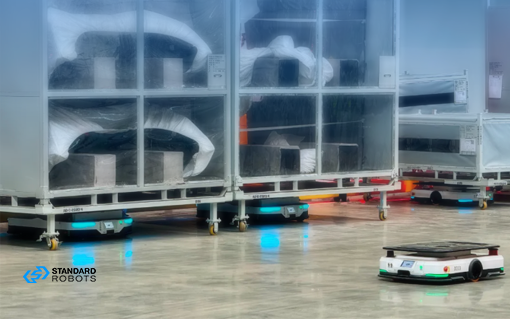
CASE STUDY
CASE STUDY: Xiaomi EV Smart Factory - The First Final Assembly Line in China with 100% Autonomous Mobile Robot (AMR) Deployed
Xiaomi EV Smart Factory - The First Final Assembly Line in China with 100% Autonomous Mobile Robot (AMR) Deployed.

